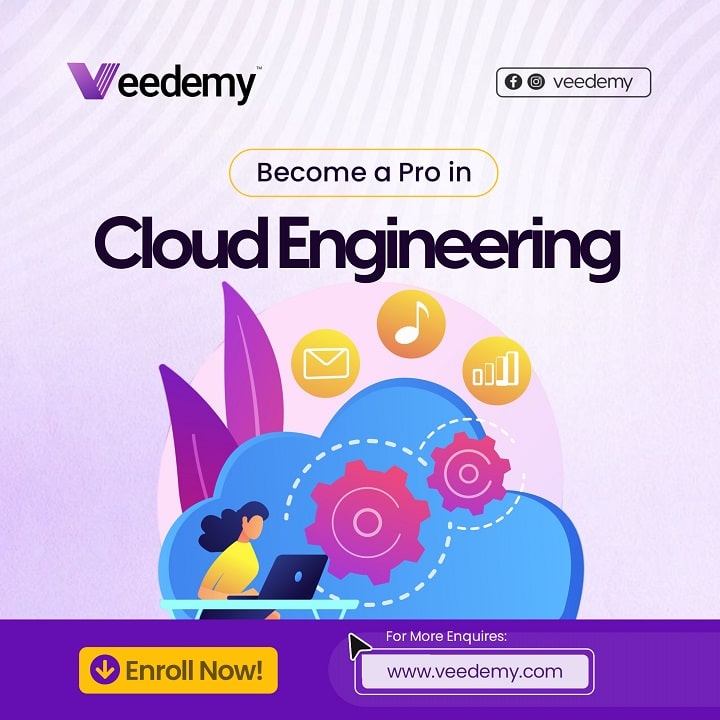Cloud Engineering Course
Cloud engineering is a field of engineering focused on the design, development, deployment, and management of cloud computing systems and solutions. It involves leveraging cloud computing technologies and services to build scalable, reliable, and cost-effective infrastructure, applications, and services. Cloud engineers work with various cloud platforms, such as Amazon Web Services (AWS), Microsoft Azure, Google Cloud Platform (GCP), and others, to meet organizational needs and objectives.
Course Outline
Here's a simple breakdown of what you'll learn if you enroll for the Cloud Engineering Course Today:.
- Overview of cloud computing concepts
- Benefits and challenges of cloud computing
- Cloud service models: IaaS, PaaS, SaaS
- Overview of major cloud providers (AWS, Azure, GCP)
- Introduction to virtual machines and compute services
- Understanding storage services (block, object, and file storage)
- Introduction to networking in the cloud (VPCs, subnets, routing)
- Setting up an account on a major cloud provider (AWS, Azure, or GCP)
- Navigating the cloud provider's console
- Introduction to command-line tools and SDKs
- Creating and managing virtual machines
- Configuring and using storage solutions
- Setting up and managing databases (SQL and NoSQL)
- Introduction to cloud security principles
- Identity and access management (IAM)
- Securing data with encryption
- Implementing basic network security (firewalls, security groups)
- Introduction to Infrastructure as Code (IaC)
- Using tools like Terraform or AWS CloudFormation
- Automating resource provisioning and management
- Overview of DevOps principles and practices
- Continuous Integration/Continuous Deployment (CI/CD) pipelines
- Using tools like Jenkins, GitLab CI, or AWS CodePipeline
- Importance of monitoring and logging in the cloud
- Using cloud provider monitoring tools (CloudWatch, Azure Monitor, Stackdriver)
- Setting up alerts and dashboards
- Understanding cloud pricing models
- Monitoring and controlling cloud costs
- Best practices for cost optimization
- Introduction to disaster recovery planning
- Implementing backup and restore solutions
- Designing for high availability and fault tolerance
- Overview of serverless computing (AWS Lambda, Azure Functions)
- Introduction to containerization and Kubernetes
- Exploring artificial intelligence and machine learning services in the cloud
- Students work on a capstone project to apply cybersecurity concepts and techniques learned throughout the course
- Project presentations and peer reviews
Cloud Platforms
Programming and Scripting
Security and Compliance
Automation and DevOps



